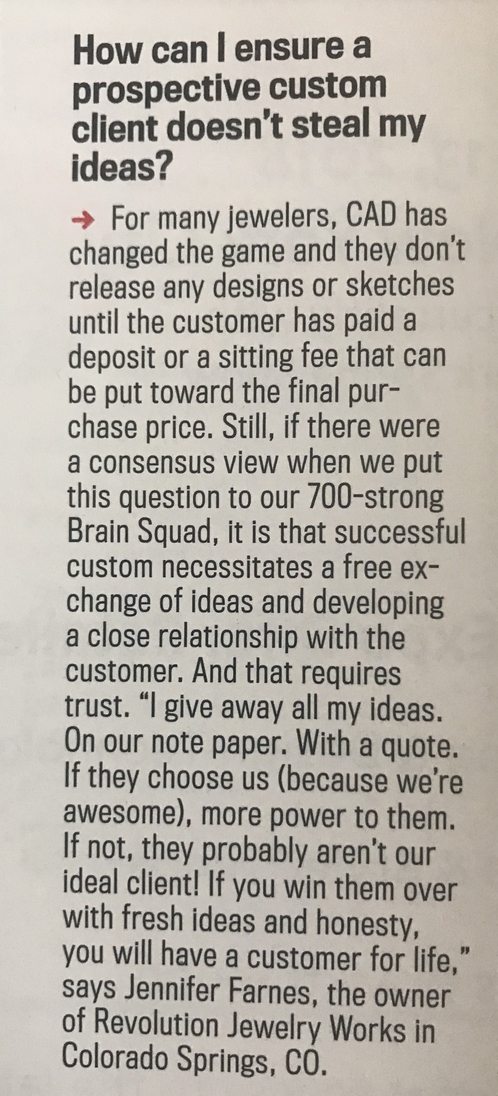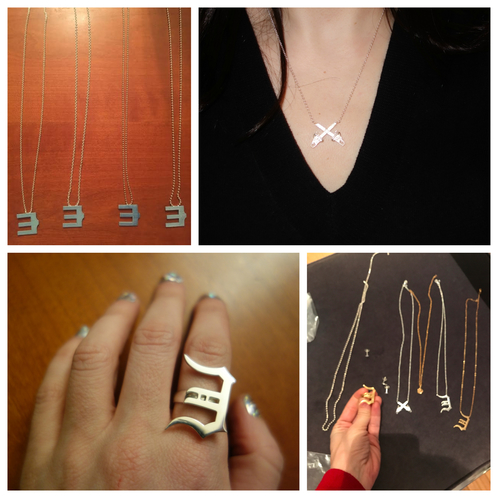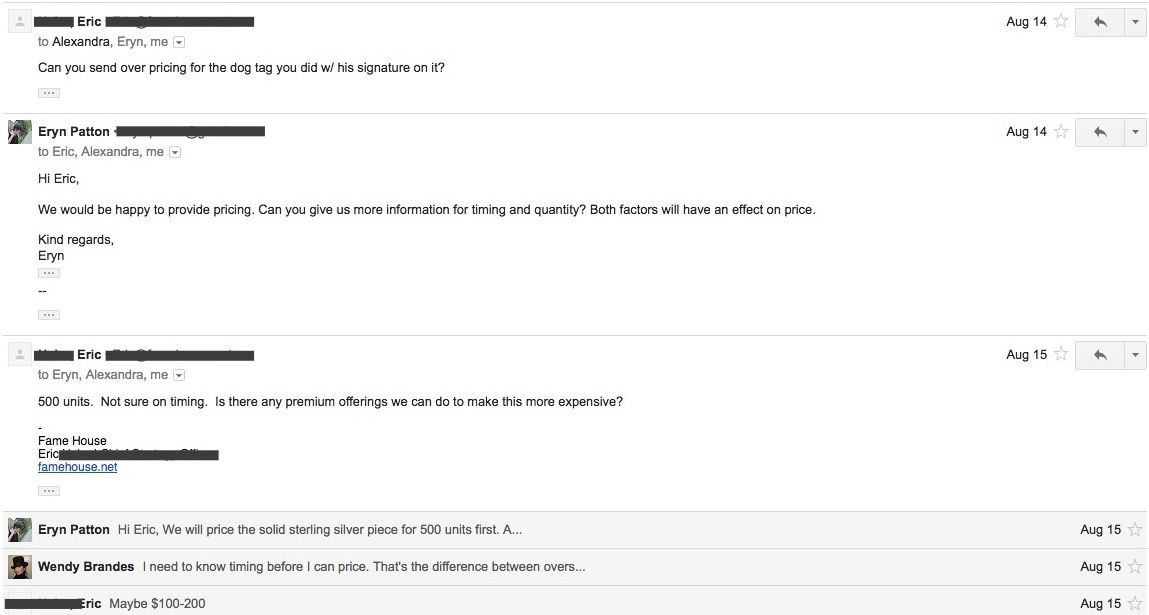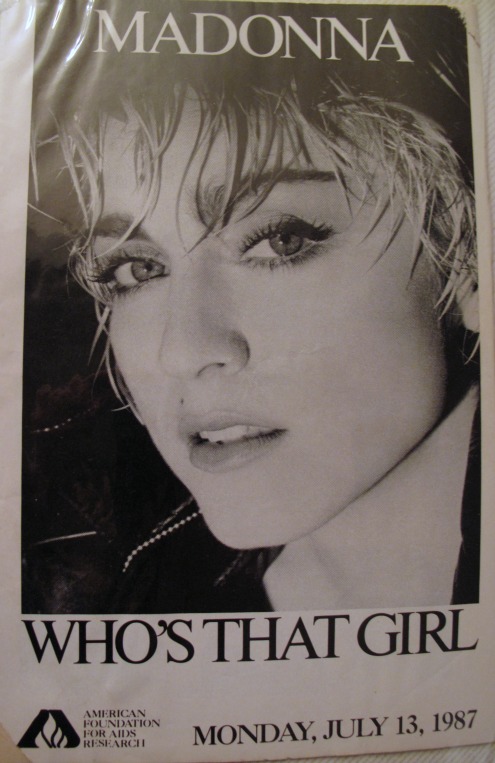This frigid Saturday, I felt gloomy. I thought, “Damn, Seasonal Affective Disorder is kicking my ass today!” As I turned on my laptop to Poodle a light box to chase away the SAD, an old registered-mail receipt tacked up near my desk caught my eye. It was addressed to Paul Rosenberg, head of Eminem’s Shady Records.

I’m not kidding!
That’s when I realized Saturday was the first anniversary of one of my more memorable business disasters, which came courtesy of Shady … and you can’t spell SHADY without SAD!
In case my long and shady business story isn’t engraved upon your subconscious in the same way it is on mine, the short version is that I spent three years working on jewelry designs with Eminem’s merchandise team, only to see my dog-tag concept produced by someone else and unveiled on Em’s website on Dec. 8, 2017. At that point, I hadn’t been paid for the sterling-silver jewelry samples, let alone the conceptualization, research, vendor outreach, designing, and so on. The fact that I did eventually get paid is all thanks to a reporter who saw this distress-signal tweet.
I truly thought I was going to do this project, especially after they inquired about using a black metal this September. My factory still has one of my quality samples, ready to match it in production. pic.twitter.com/J5UmlCahxI
— Wendy Brandes (@WendyBrandes) December 9, 2017
Intrigued, the reporter made some calls to Eminem’s team. My main merch contact kicked it upstairs to one of the top Shady people, who tried to play like Shady hadn’t embarked on any business with me because we didn’t have a formal contract. Why was there no contract? Because in my industry, for this kind of ostensibly straightforward project, the contract is finalized when the order is placed, and there’s a lot of freewheeling talk and creative interchange about concept before then, as described in this excerpt In Store Magazine’s February issue.

Shady repeatedly took me right up to the point of placing the order. Fortunately, I’d saved ALL of the Shady team’s email about the project — including summaries of conference calls — which made the label’s business intentions and many specific requests crystal clear. I shared those with the reporter during a phone call that lasted for several hours.
With all of my evidence in hand, the reporter made another phone call to Shady. Lo and behold, Shady saw the light and promised payment. Two months and a couple of resends of the invoice later, I got the $2,833 I had originally requested for the silver samples made in New York and Thailand.

Some of the Shady Records prototypes.
Ha ha! You probably thought we were fighting over millions here, right? Nope. It was less than $3,000 — an amount that means a helluva lot more to me than it ever did to them. Sadly, there was no fair way for me to charge for the hours and years wasted, not to mention the pain and suffering of being jerked around over a petty amount of money by the employees of a tiny part of a multi-billion-dollar conglomerate, who were acting on behalf of an A-list star whose jaw would probably drop if he knew what happened over his pocket change.
Like I said in an April post about this drama, I don’t think Eminem — who often shines a light on small artists — would condone this kind of behavior. That original post has screenshots of quite a few of the emails I exchanged with Shady. You can check it out here:
I’m amused that at the end of that post, I swore I’d be sharing a follow-up on lessons I learned “next week.” I must have been delirious when I wrote that. Considering that it took me months to thoroughly address the basics of the experience, my timeline for an encore was more realistically …
However, maybe this worked out for the best, because my thoughts about the lessons I have learned about this aspect of small business have evolved in the ensuing months. For instance, last December, I was really flagellating myself for not having a contract, seeing as that was the first justification for nonpayment that was thrown at me. “Only with 20/20 hindsight can I say this is the moment I should have also put together a contract,” I wrote in reference to a Shady conference call in October 2014.
But, even as I wrote about regretting my lack of contract, I was aware from my own prior experiences that plenty of contracts aren’t worth the paper they’re printed on. With contracts in place, I’ve had to argue over the meaning of terms you wouldn’t think would be in dispute, such as “a month” and “e-commerce sales.” One world-renowned retailer got out of a contract with me by saying the person who signed the contract on its behalf wasn’t authorized to do so. Moreover, contracts don’t go out and collect your money for you. Even if the terms of the contract or signer’s authority aren’t in dispute, the other party can simply … not pay. That’s when you could, in theory, sue for breach of contract. One catch: You’ve got to pay for a lawyer to sue, and good luck with that if you’re a small business going up against — for instance — a global company with an in-house legal team. If the amount of money in question is small enough, you can take the other party to small-claims court, where you don’t need a lawyer. Then, if the other side doesn’t show up, you win by default, but you still have to collect the money! In that case, maybe you have time to go stand outside the other party’s office day after day to prove you’re never going to give up. I know someone who succeeded in collecting on a small-claims verdict after doing that. I know someone else who got hit with a restraining order after trying to collect that way, so you win some, you lose some with that technique.
So, would I advise having a contract when possible? Yes, just so you can say, “I have a contract!” and that’s one less weapon the other side has to wield against you. But there are always going to be people who enter contracts in bad faith — with no intention of abiding by the terms — while others sign in good faith but crumble under some kind of internal pressure. In that case, your best bet might be to expose the other party’s behavior and hope they care about their reputation, which actually worked for me TWICE, even when there was no contract.
Not every individual or company cares about reputation. We’ve probably all encountered shady (lower-case “S”!) operations that seem to persist despite a poor reputation. People associated with an organization like that aren’t going to care that much if there’s one more strike against it. Interestingly, when it comes to leveraging reputational risk, a social-media-savvy small-business owner might have better luck getting satisfaction out of a giant company rather than another small one. A huge company has public-relations people, who will eventually have to deal with blowback on Twitter and Facebook, even if they have an low-paid intern running the accounts on a daily basis. Twitter helped me solve the problem of Topshop knocking me off back in 2012, though the issue wasn’t totally put to bed until I paid $3,000 in legal fees. But, hey, I got this before paying a lawyer.

It did take 24 hours of helpful people furiously tweeting on my behalf. That’s the catch when it comes to reputation. You have to hope your issue strikes a chord with other people. With Topshop, it was a whole bunch of fashion bloggers taking up for me. With Shady (capital S!), it was one reporter for a national publication who made calls to research a story that never even ran! I couldn’t have predicted either of those things, nor did I have any control over them.
Business disputes can arise from small, banal transactions that shouldn’t require excessive due diligence. Say you’re a college newspaper, and the local sperm bank wants to take out around $1500 in advertising over a period of time. Why would you overthink it? You sell ads to small businesses daily without ending up in small-claims court. Of course, there’s always an exception to the rule.
The sperm-bank small-claims court story remains one of the highlights of my many years as a trustee of the Columbia Daily Spectator. Shout-out to the student publisher who was determined we’d get paid, and not “in kind” either!
Anyway, there are plenty of business interactions where you’re not going to be doing a full credit-report-style, deep-dive evaluation of the other party because it’s like “here’s the thing you want,” “here’s your money” and that’s the end of that. But based on my Shady experience, I think it’s important for small-business owners to recognize when they’re not interacting with another small business, but a subsidiary of a much bigger organization. As I wrote in April:
“Shady Records is owned by Interscope and Interscope, in turn, is owned by Universal Music Group, which reported $6.8 billion in revenue for 2017 alone. Universal Music Group is one of the big subsidiaries of the French mass-media giant called Vivendi, which had revenues of over 12 billion euros ($15 billion) in 2017, and employs over 33,000 people.”
Since then, Vivendi announced that it would be selling up to 50% of Universal Music Group “to one or more strategic partners, in order to extract the highest value.” As for that value, a year prior, investment bank Goldman Sachs said Universal was worth $23.5 billion, making Universal the biggest label in the industry. Anyway, I know enough to be wary of mega-companies because I previously worked at several of them, yet I conversed with the Shady team like we were all small artists doing our thing, because that’s Eminem’s label, and who thinks of Eminem as corporate? (Um, everyone who makes a living from his “brand,” that’s who.) I’m not sure it even hit me until my complaint got kicked upstairs to a big shot at Universal that I was dealing with a tiny subsidiary of a big-ass bureaucracy, and then I remembered that big-ass bureaucracies usually have a pretty easy time swatting away gnat-like small-biz annoyances.
If I found myself dealing with a company of that size in the future, I might try to position myself as a consultant providing design ideas rather than a small vendor producing physical goods. That would require a contract and payment for time spent, rather than product delivered. Time is definitely money, and when there are layers of approvals on the other company’s end, that company is going to take up a lot of your time. Imagine working on one project for years and not being paid for all that labor. I mean, I don’t have to imagine it, because I lived it, but you can imagine it and then avoid it like the plague. The company you’re dealing with might not go for that idea, but it’s worth a shot. And maybe if they don’t like the idea of valuing your time from the get-go, that’s an indication that the deal might not be worth it for you.
Finally, maybe you’ve heard the saying, “Never meet your heroes”? “Heroes” is definitely too strong a word for me — “favorites” would be better — but I agree that if you encounter someone you’ve loved from a distance on a bad day for him or her, a source of pleasure in your life might be forever tainted. The musician Moby said he once avoided Neil Young at a party, telling The Insider that he’d rather not “lose 20 of my favorite songs of all time.” And I had the good sense not to say anything to Madonna when I noticed her momentarily alone, within arm’s reach, at an Oscar party in 2006. I’ve gone to every tour she’s done since I went to her Radio City Music Hall show in lieu of my high-school prom in 1985. I love Madonna’s shows, and I wasn’t going to jeopardize that feeling.
Accordingly, you small-business owners should think twice before you merch your heroes (or favorites). It doesn’t matter if you’re literally designing and producing merchandise like I was supposed to, or if you’re doing the bookkeeping, event planning, chauffeuring, or anything else. If the professional relationship goes south, whatever work angst you would normally feel is going to be complicated by a sense of personal loss. Every time you watch that show or go to that concert or cheer that team after your bad experience … you might not think of it consciously, but, there’s a little cloud hanging over the experience, where there was previously nothing but blue skies. Or maybe the feeling of business gone bad is better described as an aftertaste. Have you ever had Tab diet soda? (Believe it or not, ’80s peeps, Tab is still around.) Tab’s aftertaste was infamous. Back in the day, we kept right on drinking it though. Yep! Eminem is Tab to me now. Serve him with lemon and ice for best results.
My most-overused words are “at least,” because I’m constantly looking for the bright side of any situation. I can’t resist that here either: With Shady Records, at least I can say that I persisted and won. I got as much money as I could demand. I also learned some from my mistakes. And I got another chapter for my “Bitchtastic Guide to Business™” book. When I finally publish that book, I’ll have to send autographed copies to the Shady team — but only after they pay full price!


Love the TAB reference. All of this is excellent